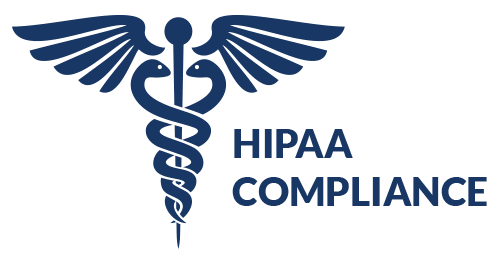69% of businesses see compliance as a cost driver. However, non-compliance isn’t inviting either. While a compliant business that has gone through a data breach will suffer losses, the losses of a non-compliant business are magnified by the hefty non-compliance fines that follow.
As a result, remaining compliant to HIPAA in the health industry is pivotal, but that doesn’t make it easy to achieve. Ideally, to be fully compliant with these rules, you need to understand them. In most cases, you will need to achieve four parts, which include the privacy rule, the security rule, the breach notification rule, and the enforcement rule.
Here is more about these rules and how to remain complaint:
HIPAA Security Rule
Under this rule, you need to preserve the integrity, confidentiality, and security of PHI (protected health information). Ideally, this needs to be achieved through a combination of administrative, technical, and physical safeguards. In a nutshell, technical safeguards will involve the security tools you have in place to keep health data secure and confidential.
For instance, you can use access control systems, encryption, and audit controls to ensure that all processes are in line with HIPAA requirements. On the other hand, administrative safeguards will ensure that you have policies in place to make sure that your entire workforce abides by the requirements. These policies should outline how employees should conduct themselves, how security tools are to be used, and how often the policies need to be reviewed, among other aspects.
Lastly, the physical safeguards will deal with the physical access of PHI. This can be done through facility access controls, workstation security, device and media controls, and workstation use policies. For instance, using padlocks to lock patient file cabinets limits any access by unauthorized personnel.
HIPAA Privacy Rule
This rule is meant to protect the confidentiality of medical records and health information. It is intended to limit access to health data to a need-to-know basis. Health care centres, clearinghouses, and health plan providers need to ensure that only authorized people can gain access to patient’s data and other medical records.
On the flip side, the patient also has some rights on the data that a business stores. For instance, you are obligated to offer patients access to the personal data that you have stored about them. They may also request some changes to the data once they have examined it.
HIPAA Enforcement Rule
Under this rule, your business should be fined for failure to follow any of the rules outlined in the HIPAA requirements. It gives lawmakers and other agencies that examine the regulatory and statutory framework of the HIPAA the power to address the improper disclosure and usage of protected health information. Some of these bodies include the CMS (Center for Medicare &Medicaid Services), the HHS (Health and Human Services), and the DOJ (Department Of Justice).
HIPAA Breach Notification Rule
Data breaches can happen, but what you do about them will determine the fate of your health business. Under this rule, you will need to notify the affected patients and entities of any data breach as soon as possible. On the other hand, you will need to inform the public and media if more than 500 patients were affected by the breach. This protects the interests of the affected by issues like identity theft.
Why You Need HIPAA Certification
To do business with you, most health organizations will need to be sure that your business is fully compliant with HIPAA requirements. They need to be sure that your workforce is trained on HIPAA guidelines, you have ad hoc security tools and protocols in place, and have the administrative posture for protecting the integrity and safety of patient’s data. However, there is no single certification body that is recognized by the law, but multiple businesses can offer certification services.
This certification confirms that all the requirements are in line with your Business Associate Agreement (BAA) and the HIPAA guidelines. Ideally, third-party audits can make it possible to spot deficiencies in your compliance efforts. In turn, you can address them long before any regulatory body detects them and fines your business. They can also help you monitor your compliance efforts to ensure that you can cater to any non-compliance risks.
HIPAA vs. Security
HIPAA is not synonymous to cyber-security in the health industry, which is why you should never use it as your checklist to cyber-security. While it provides some guidelines on how to keep health data secure, it doesn’t suffice in securing your business from evolving cyber threats. HIPAA guidelines have almost remained the same over the years, despite the ever-changing security landscape.
As a result, you ought to invest in cyber-security and use it to complement the HIPAA guidelines. Although there are some areas where the role of your compliance and security department will intertwine, they should be separate departments. In a nutshell, remaining HIPAA compliant will need you to safeguard PHI, control and limit access to patient’s data, implement HIPAA training programs, and work with HIPAA compliant businesses. The more complaint you are, the more businesses you can work with. Concentrate on remaining compliant to avoid hefty fines and protect the health data you collect.








